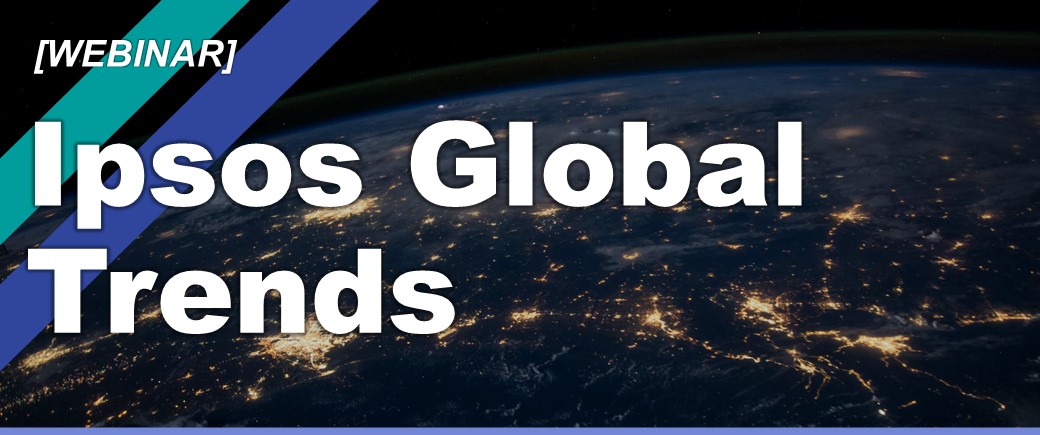

[WEBINAR] Ipsos Global Trends - Aftershocks and continuity

The latest instalment in this series that seeks to understand how global values are shifting.
- For most people across 25 countries, it is now more important that businesses fight climate change than pay the right amount of tax
- Seven in ten globally now say they tend to buy brands that reflect their personal values and that business leaders have a responsibility to speak out on social issues
- Around the world, agreement on the urgency of dealing with climate change continues to rise but many other social attitudes hold steady, despite Covid-19
Speakers and Topics
Ipsos GTS: Aftershocks and Continuity
Ben Page CEO of Ipsos
The latest instalment in Ipsos’ wide-ranging series that seeks to understand how global values are shifting. This year's update polls the public in 25 countries around the world, ranging from developed countries such as the US, UK and Italy, to emerging markets in South Africa, Kenya and Nigeria (the last two both included for the first time). The survey reveals a world where public attitudes and values have changed – and where they haven’t – under pressure from the pandemic.
Brand Purpose, Data and Tech in Africa
Enock Wandera Chief Client Officer (Kenya)
The importance of brands aligning with personal values has been accelerated over the pandemic – worldwide, but also in Africa where uniquely, the connection of societal values to personal values is quite entrenched and likely to be extended in choice of brands. There is a general strong opinion against social media firms, including here in Africa. Curiously, even though there is concern about what personal information governments and companies know from online sources, the survey reveals varying attitudes towards data privacy - most markedly, there is a sense of resignation to the fact that loss of privacy will be inevitable in the long run. What does this mean for an increasingly tech-savvy Africa and Africans?
Important Trends to watch in 2022
Mari Harris Knowledge Director (SSA)
There is high interest in business leaders getting involved in social issues, with more than eight in ten of the public in Nigeria, Kenya and South Africa agreeing that business leaders have a responsibility to speak out on social and political issues. Can this attitude be reconciled with the fact that African governments often do not appreciate “interference” from business? Is there a real choice when we look at the 2022 imperatives in Africa regarding the environment, inequality, population trends and political challenges?
Other events
-
28
Apr 2022
-
31
Mar 2022
-
21
Sep 2021[WEBINAR] Empty Offices: Understanding staff ambivalence to returning to the office
- 11.00am SAST
- Online webinar

